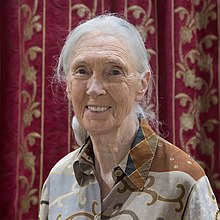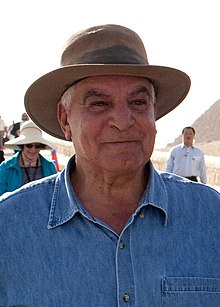 |
| Join Us Every Friday! #NovConv |
To be a little different from the usual
'meet the author'
'meet the author'
let's meet a
character...
Mielitta
from
Mielitta: May the stones be with you, Helen!
CONNECT WITH JEAN
Buy link https://books2read.com/QueenBee
Subscribe to Jean’s Special Readers’ Group for exclusive news and offers
https://landing.mailerlite.com/webforms/landing/t0b3c5
Website https://jeangill.com/
Twitter https://twitter.com/writerjeangill
Facebook https://www.facebook.com/writerjeangill
Instagram https://www.instagram.com/writerjeangill/
Youtube channel https://www.youtube.com/user/beteljean
Email jean.gill@wanadoo.fr
character...
Mielitta
Q: Hello, I’m Helen, host
of Novel Conversations, please do
make yourself comfortable. Would you like a drink? Tea, coffee, wine –
something stronger? You’ll find a box of chocolates and a bowl of fruit on the
table next to you, please do help yourself. I believe you are a character in Jean
Gill’s novel Queen of the Warrior Bees, Book 1 in the series Natural Forces (but can
be read as a standalone). Would you like to introduce yourself? Are you a
lead character or a supporting role?
A: I’m Mielitta, just
turned eighteen and I live – used to live – in the Citadel. I’d love a glass of
mead – if the honey is locally sourced. Hmm.. it’s complicated. I was nobody,
invisible unless I failed or disappointed… and then I was stung by bees and
changed. I suppose I must be the lead character.
Q: What genre is the novel and what is it about?
A: Eco-fantasy. Perfect
society in the Citadel has banished all forms of Nature to keep citizens safe
in a sustainable world. The ruling mages create greylight and darklight beneath
a canopy that protects us from weather and the big enemy – the Forest. Even the
word Forest is unmentionable although we know it’s out there. But I don’t fit
in. I wasn’t born like other babies and I knew there was something better than
this grey life. I had to flee to the Forest and what I discovered there – well,
it changed my life.
Q: No spoilers, but are
you a ‘goodie’ or a ‘baddie’? (Or maybe you are both?)
A: In the Forest, I’m a goodie, the hope for its survival. But in the
Citadel, I’m a ‘freak’ under sentence of death.
Q: Tell me about another character in the novel –
maybe your best friend, lover or partner … or maybe your arch enemy!
A: I don’t know what to make of Jannlou. He’s the Chief Mage’s son, the
bane of my existence with his friend Bastien. But when he’s had the chance to
take his bullying further and hurt me, it’s as if he protected me. When he
followed me into the Forest and we fought, I thought we’d reached some strange
truce. He even asked me to the Courtship Dance, when he could have any girl he
wanted. None of it makes any sense. He must be using magecraft on me. How else
could I find his blue eyes so attractive? There’s some mystery here that I
haven’t figured out yet.
Q: What is one of your
least favourite scenes you appear in?
A: I don’t want to talk about the way the Chief Mage penetrated my mind.
Q: And your favourite
scene?
A: Discovering the Forest, in all its rich variety. Or shifting into a queen
bee and going inside the hive, feeling like I belonged for the first time in my
life. It was frightening though, especially when the other queens hatched.
Q: Tell me a little about your author. Has she written any other books?
A: She’s a busy bee 😊 She’s written twenty-one books and she’s a photographer too – and a
beekeeper and mad dog-lady. She doesn’t settle on just one flower to make honey
but she’s best known for her medieval historical fiction, The Troubadours
Quartet. And for her dog story, Someone To Look Up To. But she’s
also written a cookbook, WW2 military history and poetry. She’s won some awards
too, which makes her very happy.
Q: Is your author
working on anything else at the moment?
A: We’re telling her what happens next in the war between
the Citadel and the Forest and she’s writing it all down as fast as she can. Arrows
Tipped with Honey, Book 2 in the Natural Forces series will
be out soon, probably in May 2020.
Q: How do you think authors
can be helped or supported by readers or groups? What does your author think is
the most useful for her personally?
A: She says she’s like Tinkerbell. Every time a reader enjoys one of her
books and says so, anywhere in the world, in conversation or in a review, her
writing spark gains strength.
And respect from other writers is a huge support. Inviting me to talk about her made her feel motivated. She said, ‘Thank you, Helen.’ [Helen: My pleasure]
And respect from other writers is a huge support. Inviting me to talk about her made her feel motivated. She said, ‘Thank you, Helen.’ [Helen: My pleasure]
Q: If your author was to host a dinner party what guests would she invite
and why? Maximum nine guests – real, imaginary, alive or dead.
A : She doesn’t like dinner parties but she does like one-to-one
conversations over a good meal. Since she was a teenager she’s kept a list of ten
men she’d like to meet tête-à-téte. She was more romantic when she was younger
and doesn’t usually tell anyone who’s on the list. I know Arsène Wenger made it
at one stage but was dropped. I’m not sure she’s telling the truth but she says
she’ll reveal five of them and yes, there are women she’d very much like to
spend an evening with over a good meal – she loves food - so here’s her list –
in no order.
Sirius (yes,
he’s a Great Pyrenees in one of her own books but she’s happy with good food
and a giant dog for company. I understand that because of how I feel about my
bees)


Any of the
amazing writers I’m privileged to know, now, in the ‘real’ world. Online friend
and brilliant writer, J J Marsh is in my sights as somebody I MUST meet.


Helen: Thank you, Mielitta.
It was a pleasure talking to you. Would your author like to add a short
excerpt? Meanwhile, chatting is thirsty work, would you like a refill of
that mead…? I’ll join you I think . . .
Salute! Here’s to writing
a best seller!
Mielitta: May the stones be with you, Helen!
CONNECT WITH JEAN
Buy link https://books2read.com/QueenBee
Subscribe to Jean’s Special Readers’ Group for exclusive news and offers
https://landing.mailerlite.com/webforms/landing/t0b3c5
Website https://jeangill.com/
Twitter https://twitter.com/writerjeangill
Facebook https://www.facebook.com/writerjeangill
Instagram https://www.instagram.com/writerjeangill/
Youtube channel https://www.youtube.com/user/beteljean
Email jean.gill@wanadoo.fr
EXCERPT
She unnocked her bow, slung it over her shoulder,
braced herself and stepped into the fierce heat again. This time, she was ready
for the uncontrolled warmth playing on her skin, tickling. She laughed. She
need not fear the sun.
She made her way back to the stream, listening to
the music of water on pebbles, a song she had never heard. She sat down to
listen better, on a comfortably rounded rock, safely above the prickle of grass
blades. This was a song like book poetry, not like the schoolroom songs which
praised the Citadel and promoted good citizenship, with a side-nod to hygiene
and reproduction.
Her exertions in the heat had made her thirsty and,
in defiance of the schoolroom songs, she scooped up a handful of unpurified
water, losing trickles between her fingers as she drank.
As she sipped, she paused to marvel and drank
again. Bubbles burst on her tongue like a liquid giggle. Then the water told
its history, from snow-capped mountains through forests and meandering pasture,
to this small diversion from a mighty river.
The water told its geology, from glacial tarns
through limestone pavements and hard bedrock, picking up a tang of calcite or
magnesium, a glitter of gold, en route.
Then the water told its wildlife. Silver-scaled
fish, seething jellies of tadpoles and slithers of eels. This and more,
Mielitta could taste in her scoop of water, as she watched a turquoise glitter
of tiny wings over the water. Dragonfly.
She wanted these pleasures again but when she
scooped and tasted a second time, the story was different. How could that be?
Did one change of pebble, one shadow over the sun, change the taste of water?
It must be so. The sadness of change, of death, and the glory of a new
adventure, in two scoops of water. She should go back.
But she was already outside the Citadel. The sun
was not to be feared, the stream was shallower than she’d thought, grass blades
did not pierce her skin. The Forest could be named and it was just – trees.
She’d stood beside one and felt no harm. She should at least explore a little
while she was here. She could go back later, when she could be sure it was safe.
Maybe Jannlou and Bastien were just inside the gate, waiting for her as she had
waited for them. Let them wait!
< PREVIOUS GUEST NEXT GUEST >

































